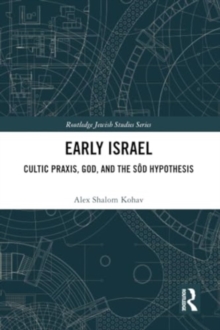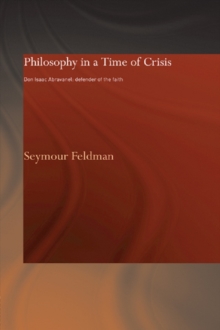
Rabbinic Judaism : Space and Place Paperback / softback
by David (The Jewish Theological Seminary, New York) Kraemer
Part of the Routledge Jewish Studies Series series
Paperback / softback
Description
In the aftermath of the conquest of the Holy Land by the Romans and their destruction of the Jerusalem Temple in 70 CE, Jews were faced with a world in existential chaos—both they and their God were rendered homeless.
In a religious tradition that had equated Divine approval with peaceful dwelling on the Land, this situation was intolerable.
So the rabbis, aspirants for leadership of the post-destruction Jewish community, appropriated inherited traditions and used them as building blocks for a new religious structure.
Not unexpectedly, given the circumstances, this new rabbinic formation devoted considerable attention to matters of space and place.
Rabbinic Judaism: Space and Place offers the first comprehensive study of spatiality in Rabbinic Judaism of late antiquity, exploring how the rabbis reoriented the Jewish relationship with space and place following the destruction of the Jerusalem temple.
Drawing upon the insights of theorists such as Tuan and LeFebvre, who define the crisis that "homelessness" represents and argue for the deep relationship of human societies to their places, the book examines the compositions of the rabbis and discovers both a surprisingly aggressive rabbinic spatial imagination as well as places, most notably the synagogue, where rabbinic attention to space and place is suppressed or absent.
It concludes that these represent two different but simultaneous rabbinic strategies for re-placing God and Israel—strategies that at the same time allow God and Israel to find a place anywhere.
This study offers new insight into the centrality of space and place to rabbinic religion after the destruction of the Temple, and as such would be a key resource to students and scholars interested in rabbinic and ancient Judaism, as well as providing a major new case study for anthropologists interested in the study of space.
Information
-
Out of stock
- Format:Paperback / softback
- Pages:156 pages
- Publisher:Taylor & Francis Ltd
- Publication Date:12/12/2019
- Category:
- ISBN:9780367874544
Information
-
Out of stock
- Format:Paperback / softback
- Pages:156 pages
- Publisher:Taylor & Francis Ltd
- Publication Date:12/12/2019
- Category:
- ISBN:9780367874544










